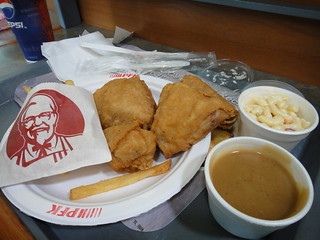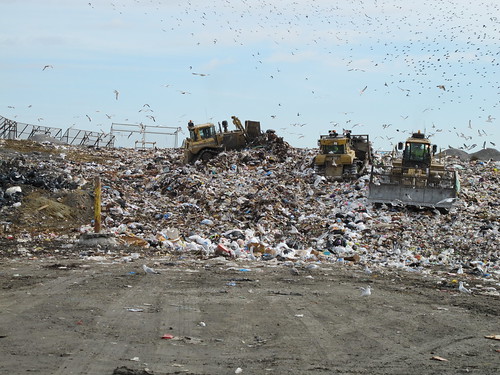"Eat your food honey, we are not going to waste perfectly good food."
I think everyone has heard this before in their life. Our parents have said it to us, we've echoed it to our children, and I've even heard my five year old echo it to her younger sister in sort of a habitual fashion.
The most recent time I heard this phrase was two days ago during a family lunch outing. We were sitting in a diner trying to hurry the kids along to get going and finish running errands.
"Eat your lunch, we paid for this and I don't want to waste it," my husband explained to our 3 year old. I nodded in agreement. Seemed like good parenting.
He then proceeded to put the said lunch, a somewhat disappointing cheese quesadilla, into a Styrofoam to-go container with the assumption that our daughter would finish the sad looking meal in the car.
As we stood up I looked at the items littered around our table at the diner; several used napkins, a few empty plastic jelly packets, two over-sized Styrofoam to-go containers, and a paper receipt.
Technically we "paid" for all of those disposable items as well. I'm sure the cost of the meal reflected the supplies that were needed to deliver and consume it, right?
Why weren't we echoing the concern of wasting these items?
The food is actually the only item on the table that would benefit the earth if it was "wasted"
and put it into a compost. All of the other items, possibly with the exception of the paper napkins, are quite toxic and will sit in a landfill for hundreds of years.
And this was just the waste audit while dining in, we are all familiar with how much waste is associated with one take out meal.
 |
| Photo by Calgary Reviews |
How many times have you encouraged your children to finish their dinner so they don't waste the food, and then proceed to throw away a large bag full of plastic utensils, over-sized to-go containers, napkins, condiment packets, paper and plastic bags?
How many times have you made sure to finish the entire loaf of bread so you don't waste any, and then unthinkingly toss the bread wrapper in the trash bin or recycling container?
What makes the value of food higher than the value of the petroleum or wood pulp that was used to make the containers we deliver the food in, or the disposable utensils we eat it with?
Let's replace the phrase "don't waste your food" with "don't waste."
Let's start a habit process that teaches our children not only the value of food as a commodity we need in life to survive, but also the value of the earth and it's limited resources.
Has anyone else noticed how many more landfills there are now?! This is starting to get out of hand.
 |
| Photo by bsabarnowl |
Comments
Post a Comment